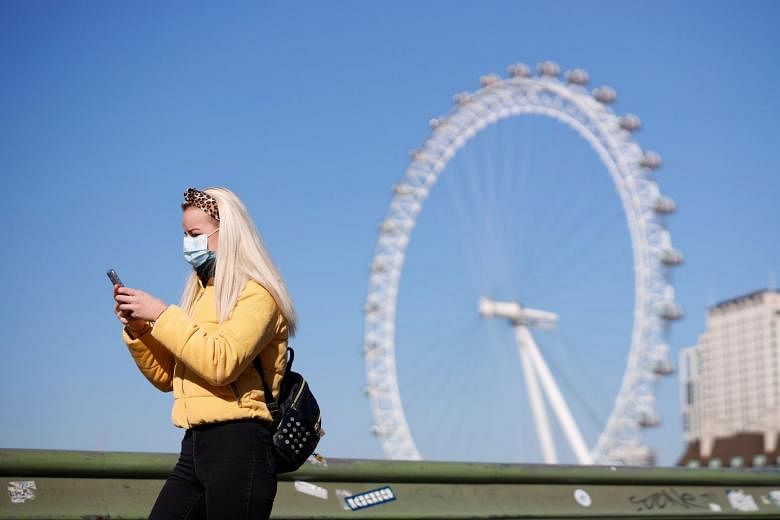LONDON (BLOOMBERG) - The UK has ordered 3.5 million home-testing kits that show whether someone has been exposed to the coronavirus, and they'll be available within days, a health official said.
The tests will be distributed when scientists from Oxford University finish evaluating them for public use, according to Prof Sharon Peacock, director of the UK's National Infection Service.
The blood tests, which check for antibodies against the virus behind the pandemic, will be sold via Amazon.com Inc. and pharmacy chains so people can test themselves, Prof Peacock told a panel of lawmakers in Parliament.
The UK ordered "further millions" of these tests on Wednesday (March 25), Prof Peacock said. The effort is part of Prime Minister Boris Johnson's push to scale up monitoring of the disease after his government faced criticism for not carrying out enough testing.
If shown to be accurate, the test can help researchers evaluate what proportion of people get the virus without any symptoms, Dr Chris Whitty, the UK's chief medical adviser said in a press conference at Downing Street, and "that has big implications for the way we then manage this".
So-called antibody tests could turbo charge the testing process, giving people who have been unable to confirm whether they have been infected or have not experienced symptoms a cheap and easy way to find out whether they've been exposed. That would enable countries to better understand how widely the disease has spread, informing policy decisions about whom to quarantine and when certain economic or social activities can be resumed.
"The first thing we need to do is collect the information to understand this epidemic," said Sir Patrick Vallance, the UK's chief scientific adviser, said in the press conference. "We need to answer the critical questions and need to make sure the right people get the test first in order to allow workers to go back."
The approach is less reliable than the molecular diagnostic tests that are used to determine whether someone is currently infected. Those tests, which have confirmed the more than 440,000 cases known globally, look for nucleic acids of the virus in people's samples. Scientists have spent recent weeks comparing the reliability of the antibody tests with the molecular assays.
Antibody tests sometimes incorrectly give a negative result in a person who has the virus, since people only develop antibodies against the coronavirus several days after being exposed. And they can wrongly give a positive result, too, if someone has developed these antibodies while fighting a different coronavirus. Even so, the tests could provide an easy way to see who appears to have developed some resistance to the virus, potentially letting them back into hospital work.











